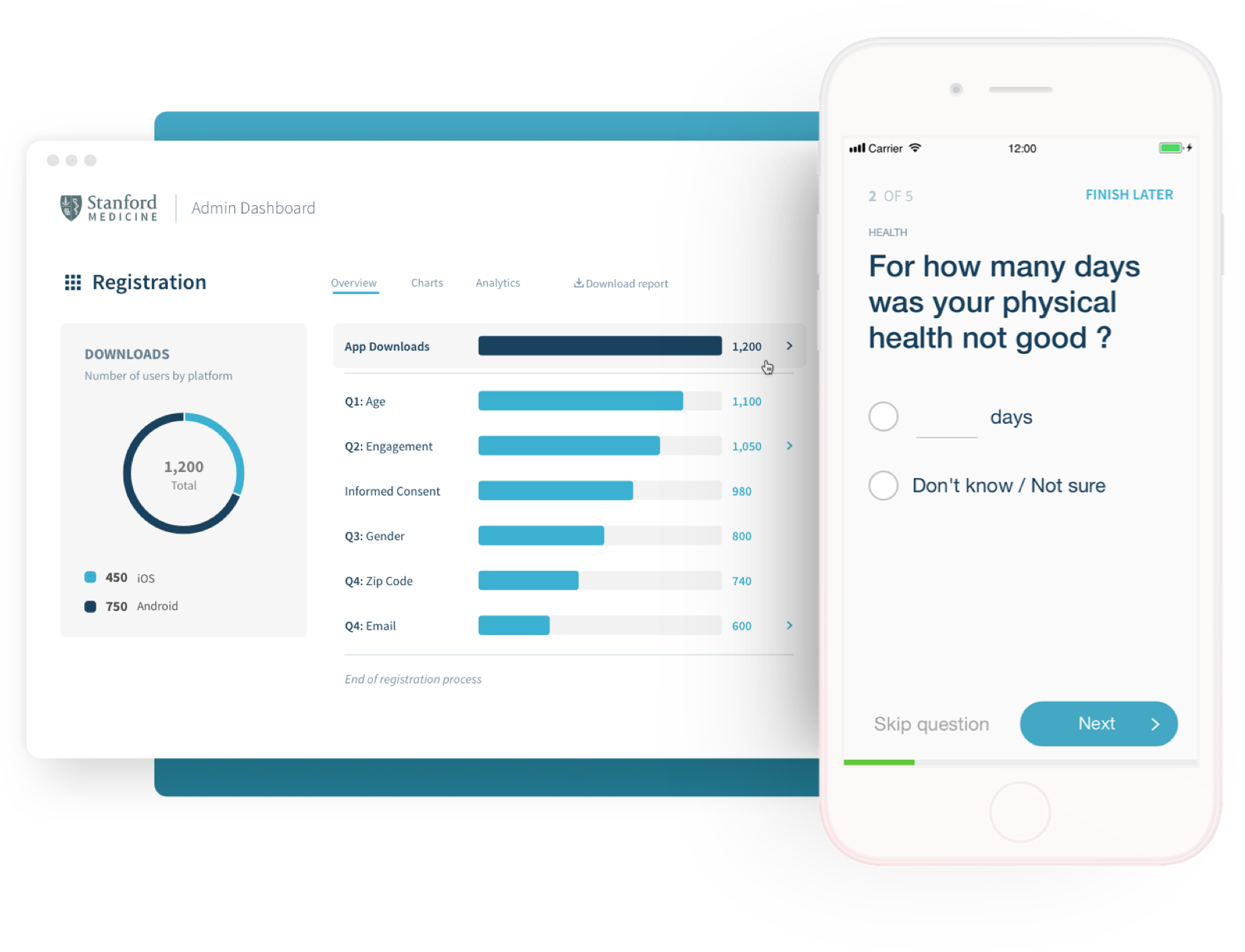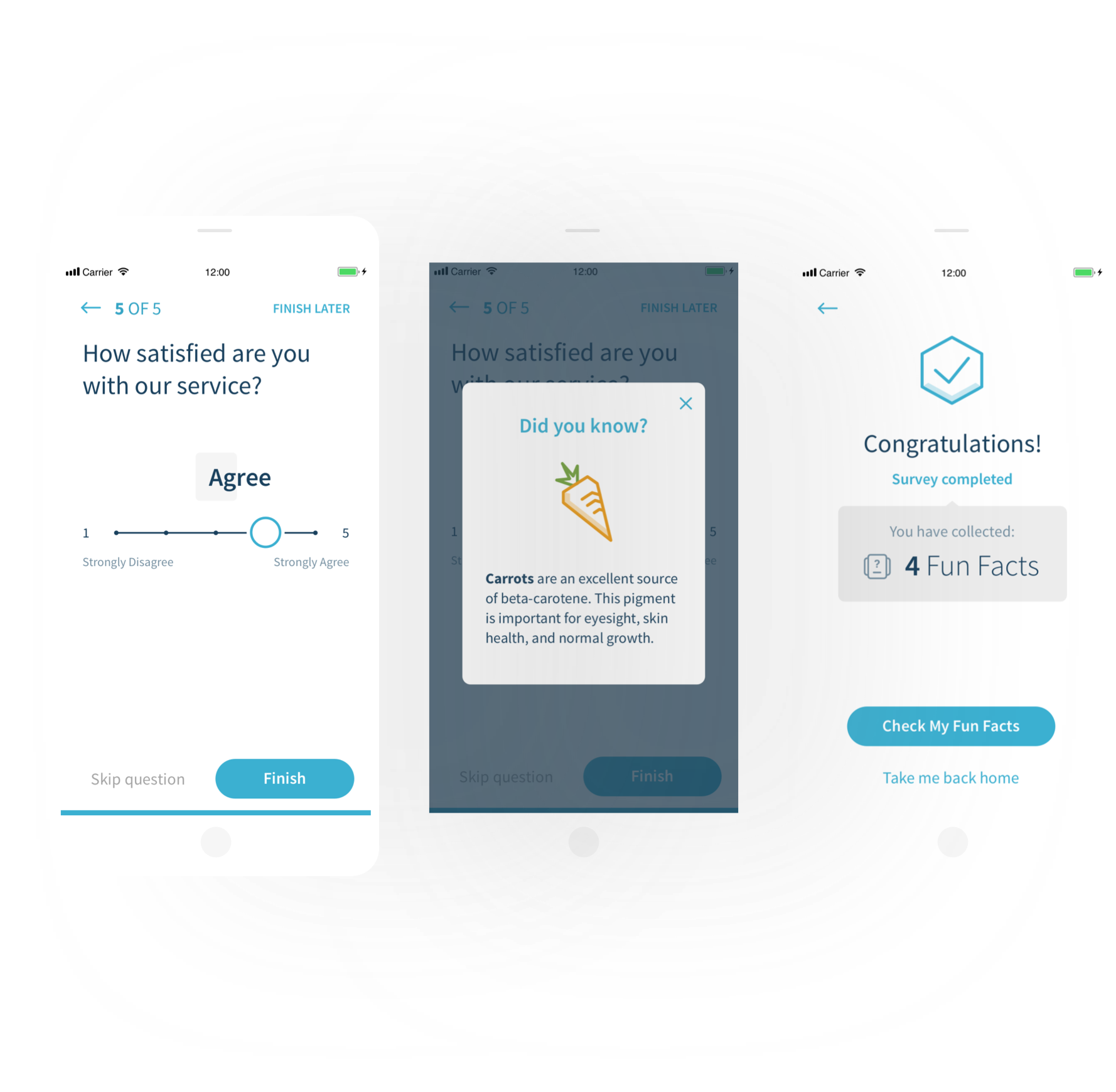Healthkey – Stanford Medicine
What if we could use technology to overcome your industry’s challenges?

The Client
A team led by Stanford Medicine University aimed to mitigate the constant decrease of response rates in surveys used for medical research. As a possible solution, they evaluated the use of mobile applications to facilitate and motivate subjects to answer.
The Challenges
Our responsibility was the design and development of mobile applications for data collection including the definition for paradata and data visualizations for researchers. Everything had to be easy to use and safe by HIPAA compliance standards. As well, they aimed to evaluate the amount of repeat responses motivated through push notifications mechanism.
This project also required us to interact with a cross functional team. We worked together with Stanford Medicine Researchers (epidemiologists), Survey research experts (former Cornell University ISR manager), statisticians, doctors, and SAMHSA (Substance Abuse and Mental Health Services Administration) representatives. This meant having to reconcile different visions and needs of a diverse group and transfer them to the application.
The Solution
We built two mobile applications, for Android and iOS, as well as two monitoring dashboards. One of these dashboards had the purpose of assessing the amount of responses and subscriptions. The other one, in conjunction with Facebook, intended to evaluate the investment in advertising and how many app downloads it generated.
The data for the dashboards was obtained from different sources including Facebook API, Google Analytics API, Medable APIs (Backend), Google Maps API, among others. As well, we developed and ran machine learning algorithms in order to improve the data analysis such as identifying geolocation patterns, new clusters, etc
Subjects received an amazon gift card that was worth 10 dollars if they completed both polls. Moreover, while answering, people were given tips and recommendations on the survey’s topic and were constantly motivated with gamification features.
Areas we covered
- UI UX Designs
- Android App Development
- iOS App Development
- QA

The Result
The project had really positive outcomes in two ways. Firstly, the developed apps helped improve response rates on surveys, which was the major challenge to be solved. Secondly, the monitoring dashboard in conjunction with Facebook allowed to compare the costs involved in answering surveys through social media compared to the cost of the traditional methods (e.g. call center).
